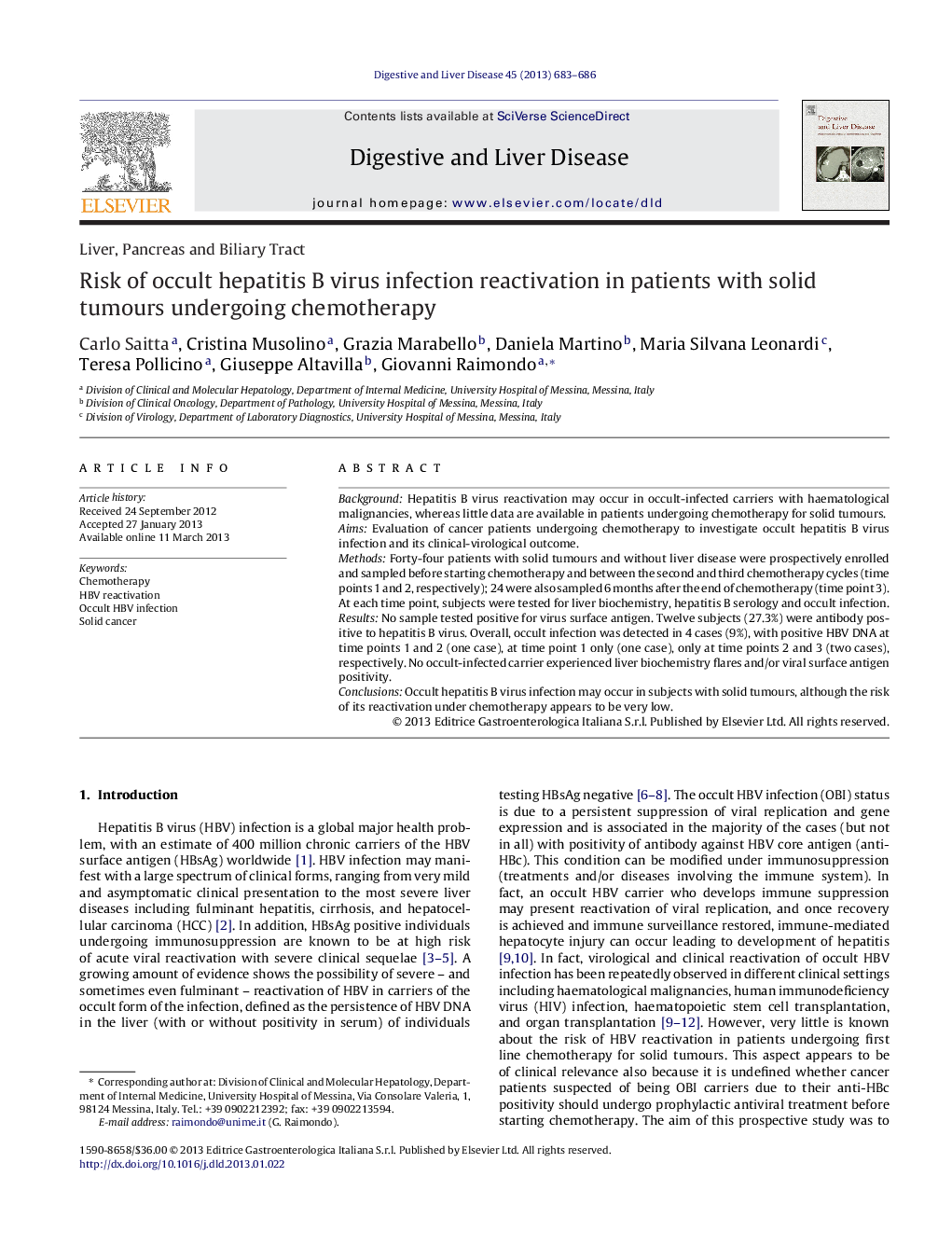| Article ID | Journal | Published Year | Pages | File Type |
|---|---|---|---|---|
| 6088840 | Digestive and Liver Disease | 2013 | 4 Pages |
BackgroundHepatitis B virus reactivation may occur in occult-infected carriers with haematological malignancies, whereas little data are available in patients undergoing chemotherapy for solid tumours.AimsEvaluation of cancer patients undergoing chemotherapy to investigate occult hepatitis B virus infection and its clinical-virological outcome.MethodsForty-four patients with solid tumours and without liver disease were prospectively enrolled and sampled before starting chemotherapy and between the second and third chemotherapy cycles (time points 1 and 2, respectively); 24 were also sampled 6 months after the end of chemotherapy (time point 3). At each time point, subjects were tested for liver biochemistry, hepatitis B serology and occult infection.ResultsNo sample tested positive for virus surface antigen. Twelve subjects (27.3%) were antibody positive to hepatitis B virus. Overall, occult infection was detected in 4 cases (9%), with positive HBV DNA at time points 1 and 2 (one case), at time point 1 only (one case), only at time points 2 and 3 (two cases), respectively. No occult-infected carrier experienced liver biochemistry flares and/or viral surface antigen positivity.ConclusionsOccult hepatitis B virus infection may occur in subjects with solid tumours, although the risk of its reactivation under chemotherapy appears to be very low.
